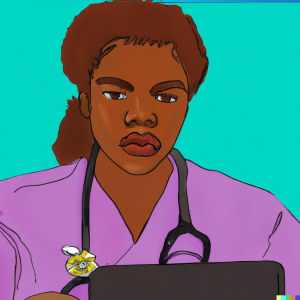
Social Isolation: Unpacking the Impacts and Drivers Across a Lifetime
In today’s interconnected world, it may seem ironic that social isolation remains a significant issue, particularly when it has profound implications for public health. The research reviewed in this recent scientific article underlines how social isolation is not just a mere inconvenience but a serious predictor of adverse health outcomes, including increased mortality and dementia risk.
What is Social Isolation?
Social isolation is defined as the objective state of having minimal contact with others. Research shows that it can be as detrimental to one’s health as smoking or obesity. This isn’t about feeling lonely (which is subjective); it’s about a measurable, observable lack of interactions.
The Unequal Burden of Isolation
One of the key takeaways from the research is that social isolation does not affect all demographics equally. Factors such as race, ethnicity, gender, sexuality, and socioeconomic status play significant roles in determining who gets isolated. For instance, evidence suggests that Black and Hispanic communities often face higher risks of social isolation compared to their White counterparts, influenced by systemic issues like discrimination and socioeconomic disparities.
Life Course Perspective
Understanding when and why individuals are more likely to experience social isolation requires a life course perspective. From early childhood, through adolescence, to older age, each stage of life comes with different risks and protective factors that can influence one’s level of social interaction. For example, the elderly may become isolated due to loss of mobility or the death of peers, while young adults might experience isolation due to major life transitions like moving to new cities for jobs or education.
Biopsychosocial Pathways
The biopsychosocial model provides a framework to understand how social isolation affects health. Biological impacts include increased risks for heart disease and weakened immune systems. Psychologically, isolation can lead to depression and anxiety. Socially, it diminishes the support systems necessary for dealing with life’s stresses and challenges.
Addressing Social Isolation
Given the complex nature of social isolation and its profound impact on health, it is clear that addressing this issue requires a multifaceted approach:
- Policy Interventions: Effective policies can help by promoting inclusivity and reducing discrimination, thereby decreasing social isolation. For example, supporting community centers can provide safe spaces for people to connect.
- Community Programs: Initiatives that encourage social interaction, especially for at-risk populations like the elderly or minorities, can be crucial.
- Awareness and Education: Increasing awareness about the causes and effects of social isolation can lead to greater community support and personal action.
Engage with Us!
We would love to hear your thoughts and experiences regarding social isolation. Do you feel that your community has adequate support systems in place to tackle this issue? What measures would you suggest to help reduce social isolation in vulnerable populations? Share your thoughts in the comments below!
Empower Your Public Health Journey – Subscribe and Transform!
Unlock the transformative power of knowledge with ‘This Week in Public Health.’ Each issue is a treasure trove of insights into crucial research, community health achievements, and advocacy strategies. Don’t just read about change – be the agent of it. Subscribe for free and start making an impact with each edition!
About the Author
Jon Scaccia, with a Ph.D. in clinical-community psychology and a research fellowship at the US Department of Health and Human Services with expertise in public health systems and quality programs. He specializes in implementing innovative, data-informed strategies to enhance community health and development. Jon helped develop the R=MC² readiness model, which aids organizations in effectively navigating change.



